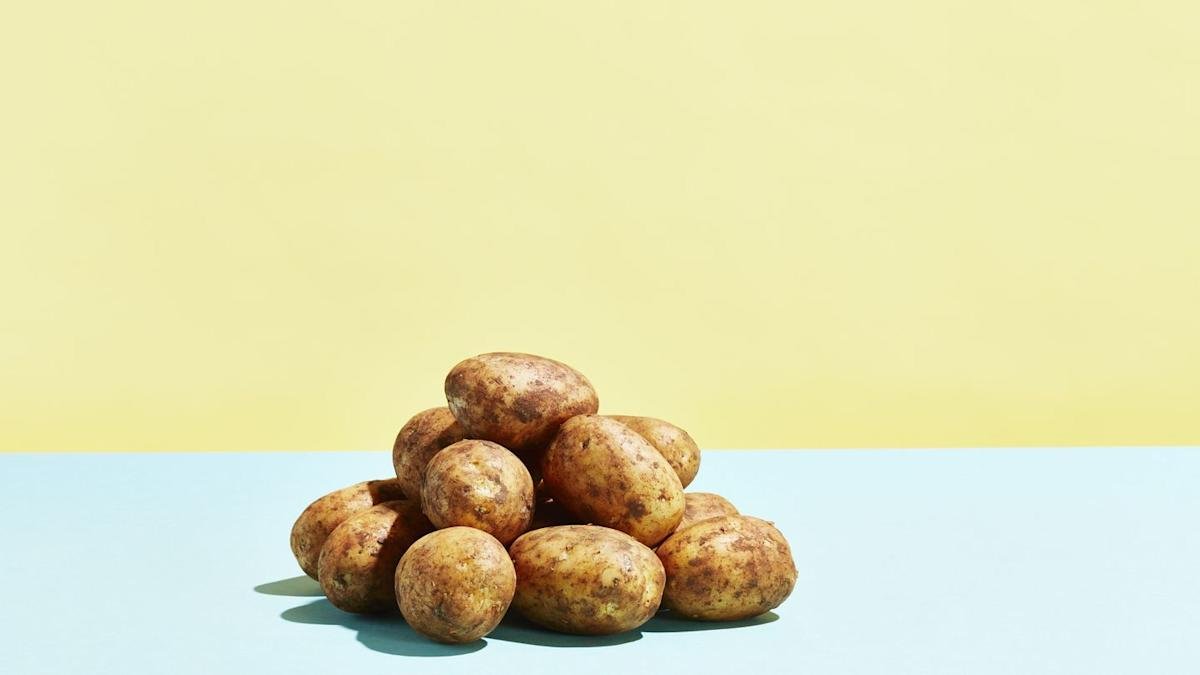Lifestyle
This New Study On Potatoes Shocked Experts. Should You Rethink Your Next Meal?

“Hearst Magazines and Yahoo may earn commission or revenue on some items through these links.”
French fries are technically made from a vegetable, putting them in a weird gray zone of health. But while diving into a basket of fries has arguable mental health perks, it’s probably not doing your physical health any solids.
Now, brand new research suggests that fries could negatively impact your health in a very specific way.
The study, which was just published Wednesday in The BMJ, found that a regular French fry habit can raise your risk of type 2 diabetes by up to 20 percent. While preparing potatoes differently than the fried version was better for type 2 diabetes risk, the researchers still found potatoes aren’t the best starch for your health.
While this doesn’t mean you should never, ever have fries or potatoes again (thankfully!), experts say it’s a good idea to keep a few things in mind about the taters going forward.
Meet the experts: Christoph Buettner, MD, PhD, is chief of the division of endocrinology at Rutgers Robert Wood Johnson Medical School; Jessica Cording, RD, CDN, is author of The Little Book of Game-Changers; Mir Ali, MD, is medical director of MemorialCare Surgical Weight Loss Center at Orange Coast Medical Center in Fountain Valley, CA
What exactly did the study find?
For the study, Harvard Public Health researchers looked at detailed information on the diets and health status of more than 205,000 people who participated in three longitudinal studies in the U.S. Those studies tracked their information for more than 30 years, and included details on how much they ate of French fries, baked, boiled, and mashed potatoes, and whole grains.
During the 30-year study period, more than 22,200 people were diagnosed with type 2 diabetes. And, when the researchers drilled down on the data, they found that those who ate three servings of fries a week had a 20 percent higher risk of being diagnosed with type 2 diabetes.
On the flip side, people who consumed baked, boiled, or mashed potatoes didn’t see a big impact on their risk of developing type 2 diabetes.
One more thing to point out: People who had whole grains (think: farro, whole grain pasta, and whole grain bread) instead of baked, boiled, or mashed potatoes had a 4 percent lower risk of being diagnosed with type 2 diabetes. And when people had whole grains instead of fries, that risk dropped by 19 percent.
OK, but why with the fry fault?
The study didn’t determine the exact reason this link exists, but there are a few things that could be behind this.
One is that eating a lot of fries could lead to weight gain, which is a known risk factor for type 2 diabetes, says Jessica Cording, RD, CDN, is author of The Little Book of Game-Changers. “Due to their high palatability, it’s easy for many people to eat a large serving very quickly,” she points out.
It’s also possible that people who eat a lot of fries have other dietary habits that can raise the risk of type 2 diabetes, including a lot of foods that are high in refined starches, fats, and sugars, says Christoph Buettner, MD, PhD, chief of the division of endocrinology at Rutgers Robert Wood Johnson Medical School. “So, the issue is less about French fries specifically, and more about the broader dietary context in which they’re often consumed,” he says.
Cording agrees. “There is something to be said for context—what other foods and beverages are most commonly consumed with fries compared to what someone might have with whole grains or with boiled, baked, or mashed potatoes?” she says.
It’s hard to say for sure what’s behind this, says Mir Ali, MD, medical director of MemorialCare Surgical Weight Loss Center at Orange Coast Medical Center in Fountain Valley, CA. “Frying changes the nutritional quality of the potatoes and undoes the benefits of potatoes,” he says. “Deep frying also creates chemicals that are less healthy for you. It’s probably a combination of all of these.”
So are potatoes healthy?
These findings don’t mean you shouldn’t touch a potato again. “Potatoes are actually inherently very nutrient dense,” Cording says. “They contain vitamin A and potassium, for example.”
But she suggests enjoying potatoes in the context of a balanced meal that provides protein, healthy fats, and high-fiber, non-starchy vegetables. “While an occasional serving of French fries isn’t something I’d tell someone to worry about, the majority of the time, I’d encourage reaching for roasted or baked potatoes,” she says.
Buettner agrees. “It’s fine to eat a few French fries with a lot of vegetables and some protein,” he says. “But you should not eat them by itself or as snacks.”

Photo credit: Women’s Health
Get the Plan

Photo credit: Hearst Owned
Get the Plan

Photo credit: Hearst Owned
Get the Plan

Photo credit: Hearst Owned
Get the Plan

Photo credit: Hearst Owned
Get the Plan

Photo credit: Hearst Owned
Get the Plan
You Might Also Like
Jennifer Garner Swears By This Retinol Eye Cream
These New Kicks Will Help You Smash Your Cross-Training Goals
